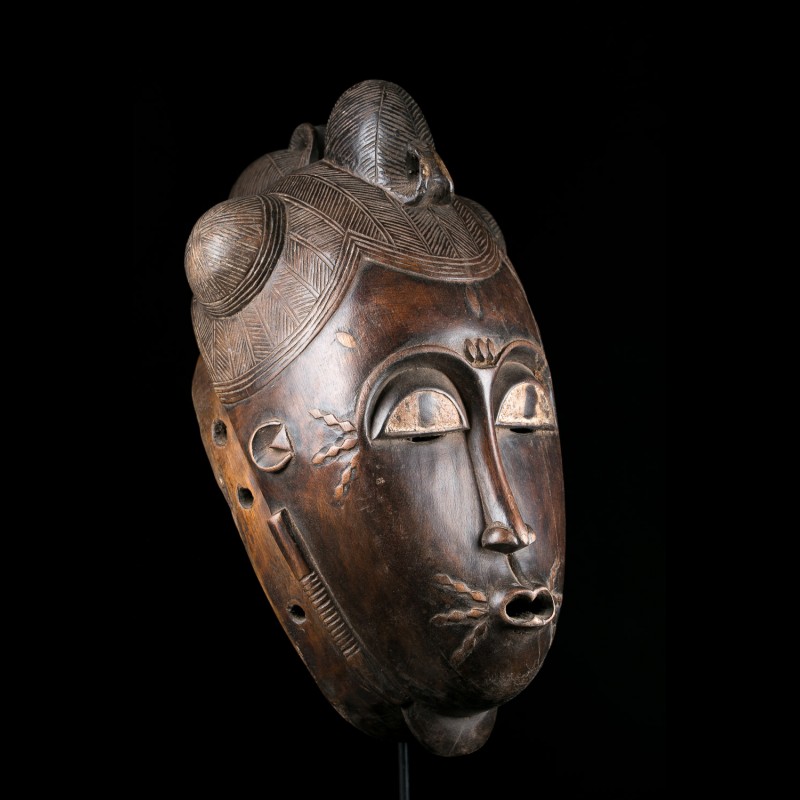









The Baule of modern day Ivory Coast perform a number of dances for village entertainment; one such performance is known as goli. A recent import from the Wan ethnic group (believed to come into use among the Baule after 1910), goli is a day long celebration usually performed during the funeral of high ranking and respected community members. Sources point to the goli dance providing not only entertainment but also protection for the village in which it is performed.Baule goli performances consist of four red/black, male/female dance mask pairs appearing in a pre-defined order. According to Susan Vogel, the masks appear in the following social order:First, a pair of disk masks called kple kple (the junior male; representing youth and weakness),Second, a pair of animal helmet masks called goli glin (the 'father' or ancestors; representing strength, amwim bush spirits and forest buffalo),Third, a pair of horned masks called kpan pre (the junior female; representing girls),and Fourth, two human-faced masks with crested coiffure called kpwan (the senior female, representing goli glin's wife, the ideal woman).Kpwan (the last and most important pair of goli masks; sometimes called kpan) represents goli glin's wife also called 'Queen of the Goli Glin'. Kpwan masks are used as head of the goli parade and are believed to be the embodiment of life-giving mothers. Unlike goli glin masks, women and children are encouraged to dance and sing with kpwan masks during celebrations. When not in use, goli masks are kept in the bush.SpecsOriginEx private collection FrançaiseSize30 x 17 cmDatingCirca 1960Material(s)Wood
Data sheet
You might also like